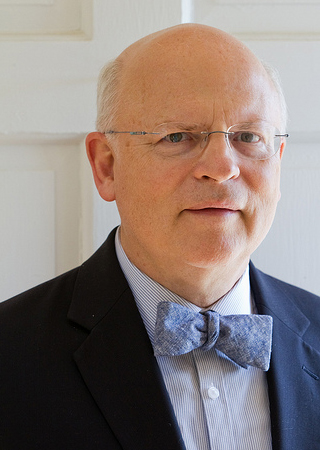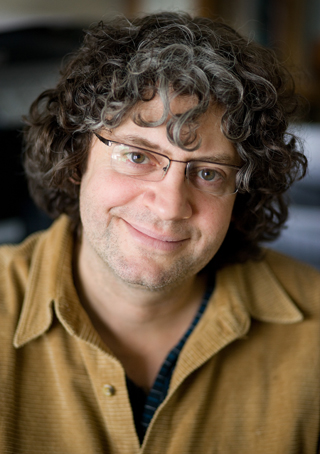May 28, 2013 • By Peter Rooney
AMHERST, Mass. – The Amherst College campus is forging ever stronger links with the burgeoning mindfulness movement, in academia and beyond.
The most recent example is an initiative—funded with a $1 million grant from the Dalai Lama and spearheaded by a renowned physicist from Amherst College and a group of 30 leading minds in fields such as education, neuroscience and childhood development—to integrate the core principles of compassion and kindness into a secular ethics curriculum that can be taught worldwide, to people of all ages.

Arthur Zajonc
“This project is bigger than anything we’ve ever done,” said Arthur Zajonc, an emeritus professor of physics at Amherst and executive director of the Mind & Life Institute.
“It aims to cultivate human ethics in every school around the world in a way that doesn’t project our own values but is based on the fundamental principle of compassion,” Zajonc said. “It’s a generational task, to do this in a way that is truly inclusive of every religion but is also for people who are non-believers, agnostic or atheist, but also are good people. You don’t have to be a person of faith to lead a moral life and this is why the Dalai Lama has used the phrase ‘beyond religion’ to describe this initiative.”
The Mind & Life Institute recently relocated several of its researchers into a white house on South Pleasant Street that was once the residence of Edward Hitchcock, Amherst College’s third president. The house’s distinctive feature is an octagonal corner that echoes the college’s nearby Octagon building, which once housed the college’s first natural history museum and observatory. (It was built during Hitchcock’s tenure as president.)

Other than a five-year lease agreement for the space, Zajonc said Mind & Life will have no further financial relationship with the college and will be responsible for raising the resources that fund its wide-ranging activities.
Zajonc and Dan Barbezat, a professor of economics at Amherst, are behind much of the mindfulness movement at Amherst. A group that includes Zajonc, Barbezat and Diana Chapman Walsh (a former Amherst College trustee and the former president of Wellesley College), aims to develop and roll out a curriculum for the Dalai Lama-supported project within the next two years.
“Clearly, educational institutions are vehicles for this cultivation and dissemination,” Barbezat said. “However, we must think about how to include those who are not able to attend school. You can see from this sort of initiative why we all subsidize education: the benefits of this type of learning reduce suffering and enhance well-being for all.”

Daniel Barbezat
Barbezat has taught several courses over the years that integrate themes of mindfulness with traditional economics, including Consumption and the Pursuit of Happiness, which he taught this spring. Barbezat also was recently named executive director of the Center for Contemplative Mind in Society, succeeding Zajonc there. And, he has two books forthcoming targeted to educators: Contemplative Practices Across the Disciplines in Higher Education (Routledge); and Contemplative Practices in Higher Education: Powerful Techniques to Improve Student Learning (Jossey-Bass).
Mindfulness is defined in various ways, but a succinct one is offered by Jon Kabat-Zinn, a well-known teacher of mindfulness meditation and the founder of the Mindfulness-Based Stress Reduction program at the University of Massachusetts Medical Center in Worcester: “Paying attention in a particular way—on purpose, in the present moment, and nonjudgmentally.”
Mindfulness—and the Mind & Life Institute—has an enthusiastic backer in President Biddy Martin, who spent time with the Dalai Lama when he visited the University of Wisconsin-Madison in 2007 when she was chancellor there.
“I am delighted that the Mind & Life Institute is located in Amherst and am proud of its association with the college,” Martin said. “It is hard to imagine anything more urgent than the forms of awareness, contemplation and empathy that the Institute promotes or the interdisciplinary thinking it encourages. I am confident that it will serve our students, staff and faculty to have the institute in our midst, and we hope the institute will be well-served by the close association with the college."
As for how it came to be that two Amherst faculty head leading organizations devoted to mindfulness and contemplative practices, Barbezat had no easy answer.
“Why is this the case? I don't know. Fortunate births, perhaps.”